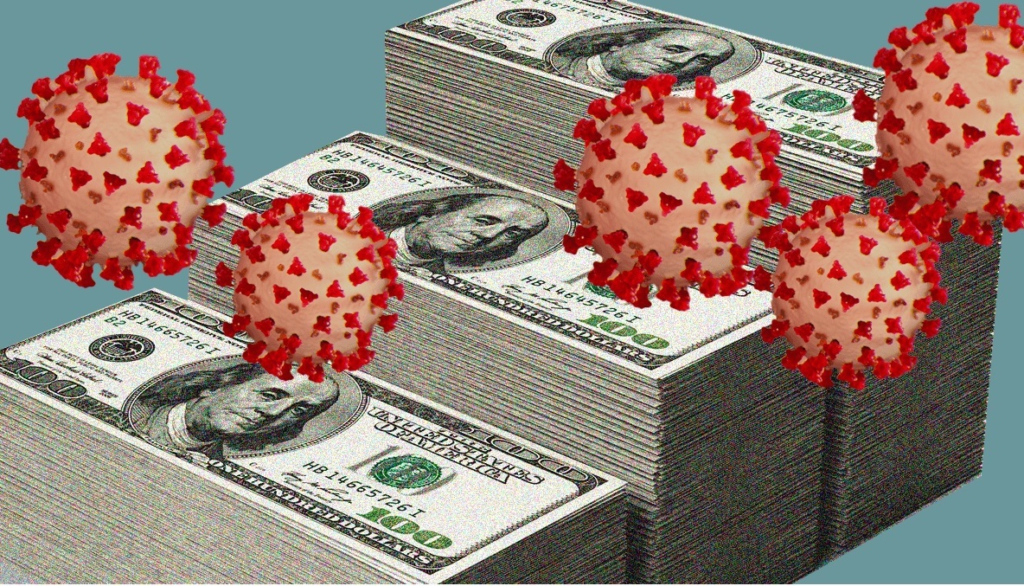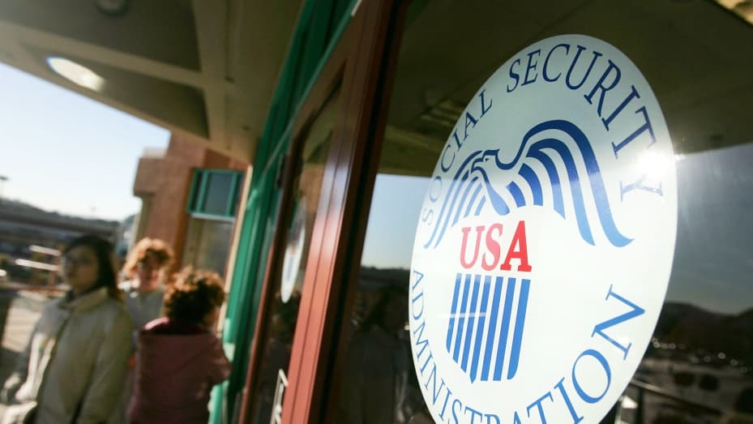
Audio By Carbonatix
The U.S. government may have awarded roughly $5.4 billion in coronavirus aid to small businesses with potentially ineligible Social Security numbers, offering the latest indication that Washington’s haste earlier in the pandemic opened the door for widespread waste, fraud and abuse.
The top watchdog overseeing stimulus spending — called the Pandemic Response Accountability Committee, or PRAC — offered the estimate in an alert issued Monday and shared early with The Washington Post. It came as House Republicans prepared to hold their first hearing this week to study the roughly $5 trillion in federal stimulus aid approved since spring 2020.
The suspected wave of grift targeted two of the government’s most generous emergency initiatives: the Paycheck Protection Program, known as PPP, and the Economic Injury Disaster Loan, dubbed EIDL. Started under President Donald Trump — and managed by the beleaguered Small Business Administration — the roughly $1 trillion in loans and grants aimed to help cash-strapped companies stay afloat financially during the worst economic crisis since the Great Depression.
But the money also served as a wellspring for criminal activity, as malicious actors took advantage of SBA and its poor oversight to bilk Washington out of seemingly massive sums. In the latest example, the PRAC found that the SBA failed to prevent a wave of applications from collecting federal money using suspect Social Security numbers.
Studying more than 33 million applicants, the PRAC uncovered more than 221,000 ineligible Social Security numbers on requests for small-business aid. That included thousands of cases where the number was “not issued” by the government, for example, or it did not match the correct name and birth information.
More than a quarter of those applications, using nearly 70,000 suspect Social Security numbers, were still approved between April 2020 and October 2022 despite the questionable data — and the government loaned those applicants about $5.4 billion, the watchdog found.
The SBA did not respond to a request for comment.
Gene Sperling, a top White House official tapped by President Biden to oversee federal pandemic spending, said in a statement that the report “demonstrates and documents both the significant fraud and identity theft that occurred under the prior administration.” Since then, he said Biden and his aides had worked to “reinstate strong anti-abuse measures in these emergency small business programs.”
The revelations affirmed the immense task the government faces to keep watch over its more than $5 trillion in emergency pandemic programs. The vast array of aid provided checks to unemployed Americans, grants to schools, hospitals and other critical facilities, and financial assistance to cities and states struggling to cover their own pandemic needs.
But the speed at which Washington doled out the money — and the long-known funding gaps in government oversight — also created the conditions ripe for theft and misuse, The Post found in its year-long investigation, the Covid Money Trail. The full extent of taxpayers’ losses remains unknown, even to Washington, as the time-consuming, expensive work continues to find and prosecute pandemic-related crimes.
For now, the fraud is likely to galvanize GOP critics who initially helped approve PPP, EIDL and other key pandemic programs. The House Oversight Committee — now run by Chairman James Comer (R-Ky.) — is slated to hold a hearing on coronavirus fraud Wednesday featuring testimony from Michael Horowitz, the chair of PRAC.

Comer, who spoke Monday at an event hosted by the National Press Club, appeared to foreshadow his growing alarm with the fate of the country’s stimulus dollars.
“I don’t think history will be kind to the PPP loan program,” he said.
Seizing on the findings, two top Republican Senators — Joni Ernst (Iowa) and Rand Paul (Ky.) — immediately wrote the inspector general for the SBA on Monday for a full review into the “deeply disturbing” data. They noted in their missive that the latest report only reviewed a sample of federal stimulus aid, raising the potential that the losses to taxpayers “could be far greater.”
The oversight report marked only the latest blemish for SBA, which lawmakers tasked two years ago to oversee a stable of stimulus aid that was greater than its usual annual budget. The agency soon faced a crush of applications from businesses that were forced to shutter in the early days of the pandemic and found themselves on the verge of collapse.
The SBA ultimately helped spare millions of these firms from financial ruin, but its haste also resulted in costly errors: It missed warning signs about rampant identity theft and other potential crimes. It funded alleged domestic grifters and foreign crime syndicates. It provided aid to larger businesses who weren’t supposed to receive money. And the agency failed to keep watch over the network of companies that helped it review aid applications, allowing them to reap billions in taxpayer-funded fees in the process.
Adding to the challenge, the SBA has granted full or partial forgiveness to more than 93 per cent of its PPP recipients. It was not immediately clear if the SBA forgave applications tied to the ineligible Social Security numbers that the PRAC surfaced on Monday.
In the report, federal watchdogs appeared to suggest the SBA struggled predominantly in the early days of PPP and EIDL two years ago. Under Trump, the requests for covid aid were not checked against key federal databases, the committee found, including the “Do Not Pay” list managed by the Treasury Department to thwart fraud.
Only late into 2020 and 2021 did the SBA begin to remedy the problem, requiring more tax documents from borrowers seeking federal money. But that proved to be too late, according to the PRAC, which acknowledged how government bureaucracy had impeded aggressive oversight — and called on officials to address the problem in the future.
In doing so, it concluded its report Monday with an ominous warning, stressing “federal agencies will remain hampered in their ability” to find and fight fraud until the government changes its practices.
Latest Stories
-
Police arrest suspect for unlawful possession and attempted sale of firearm
59 minutes -
3 arrested in connection with Tema robberies
1 hour -
Your mouth on weed is nothing to smile about
1 hour -
25% university fees hike, what was the plan all along? — Kristy Sakyi queries
3 hours -
Some OMCs reduce fuel prices; petrol going for GH¢10.86, diesel GH¢11.96
3 hours -
Trump says health is ‘perfect’ amid ageing concerns
4 hours -
China’s BYD set to overtake Tesla as world’s top EV seller
4 hours -
Joy FM’s iconic 90’s Jam returns tonight: Bigger, better, and packed with nostalgia
4 hours -
Uproar as UG fees skyrocket by over 25% for 2025/2026 academic year
6 hours -
Japan PM joins fight for more female toilets in parliament
6 hours -
Ga Mantse declares war on fishing industry child labour
7 hours -
Adom FM’s ‘Strictly Highlife’ lights up La Palm with rhythm and nostalgia in unforgettable experience
8 hours -
OMCs slash fuel prices as cedi gains
9 hours -
Around 40 dead in Swiss ski resort bar fire, police say
10 hours -
AFCON 2025: Aubameyang and Nsue make history among oldest goalscorers
11 hours

